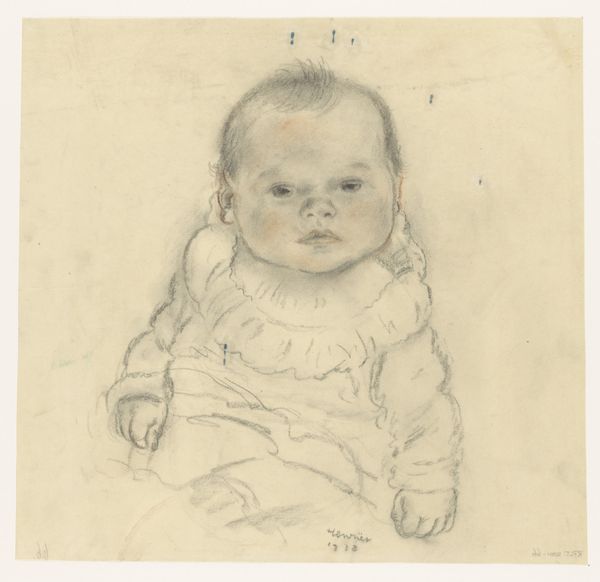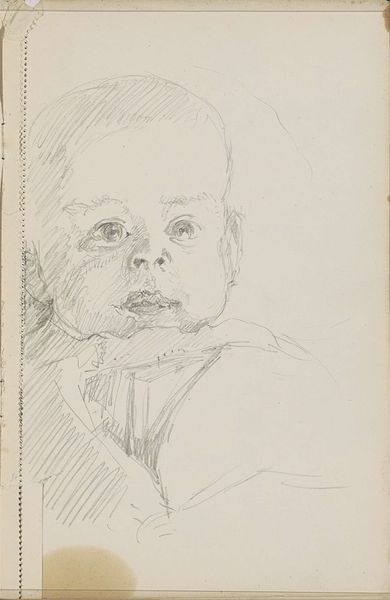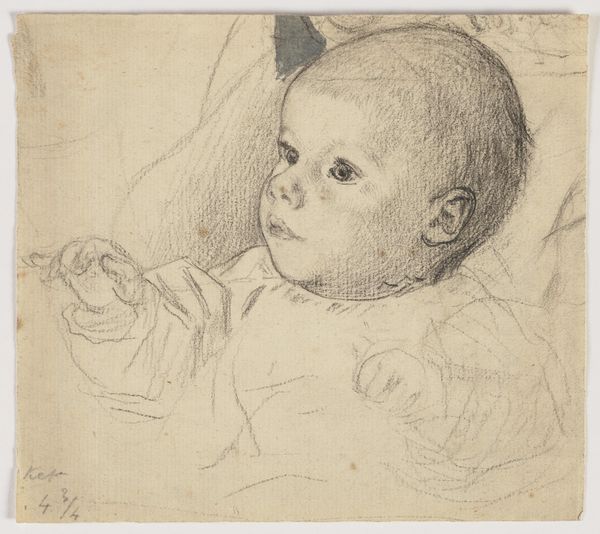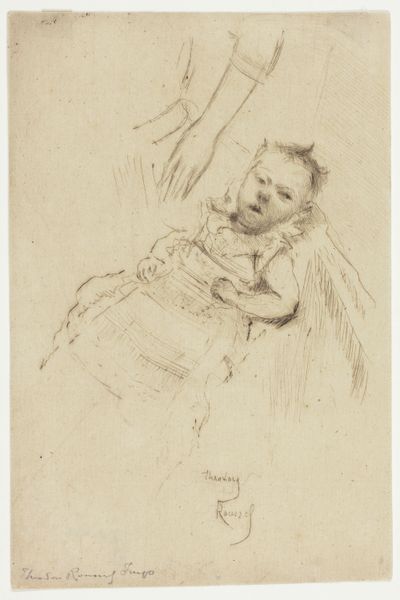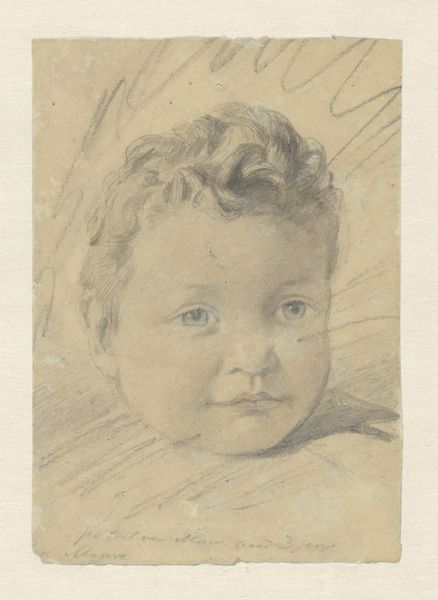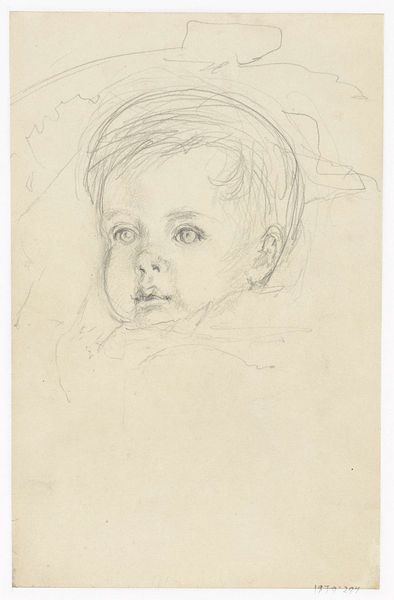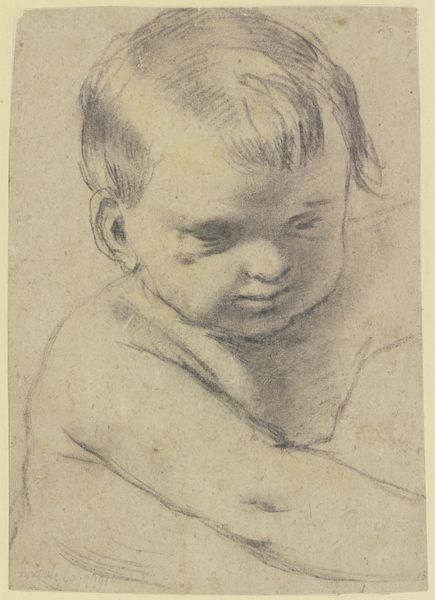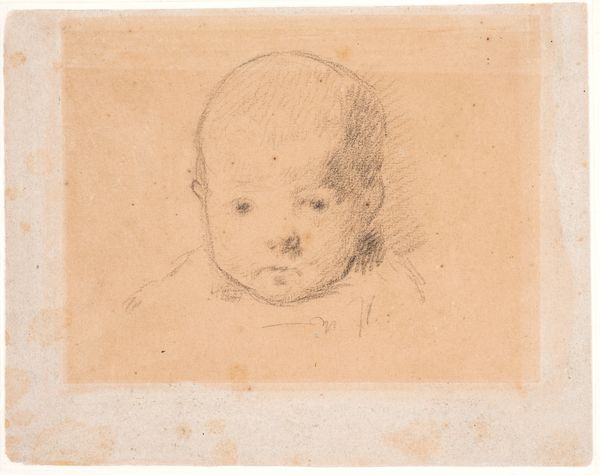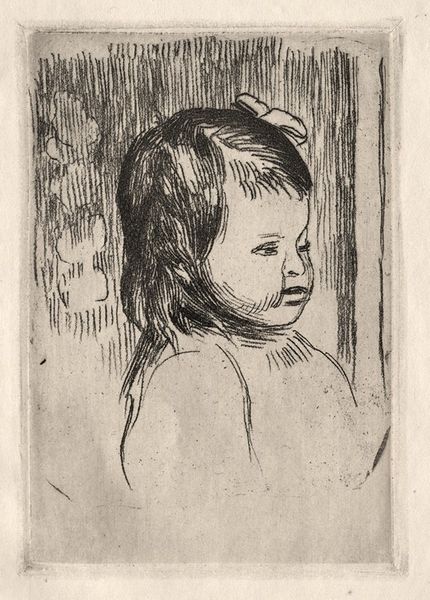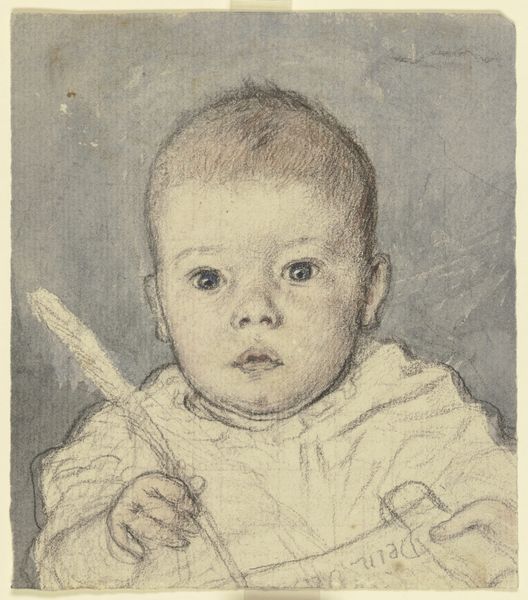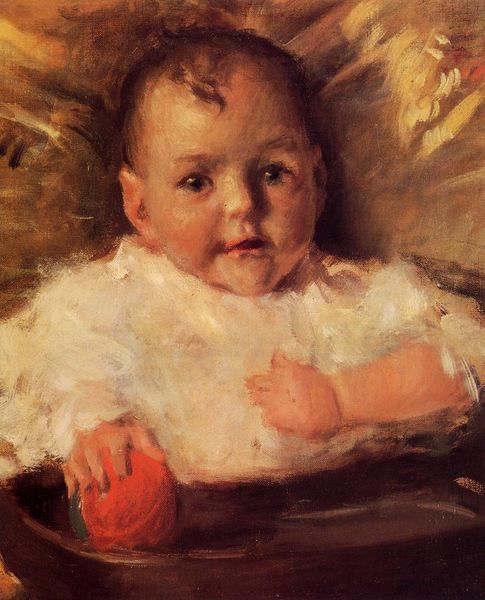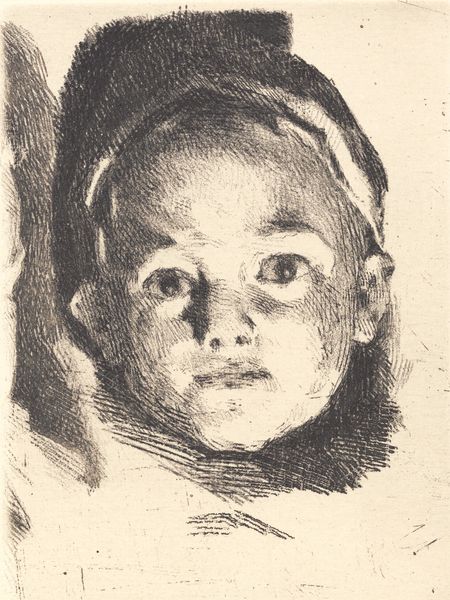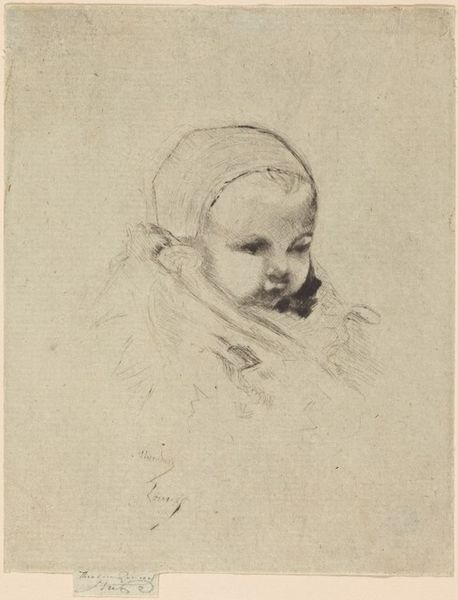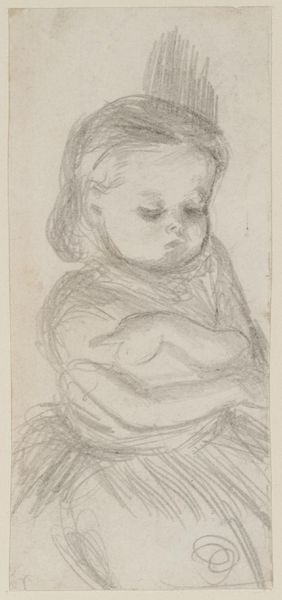
drawing, pencil, charcoal
#
portrait
#
pencil drawn
#
drawing
#
facial expression drawing
#
self-portrait
#
pencil sketch
#
german-expressionism
#
charcoal drawing
#
charcoal art
#
portrait reference
#
pencil drawing
#
pencil
#
animal drawing portrait
#
portrait drawing
#
facial study
#
charcoal
#
realism
Dimensions: 6 x 5.5 cm
Copyright: Public domain
Curator: Here we have what's known as "Portrait of a Baby," a compelling sketch by Adolph Menzel. What's your first impression? Editor: The mood strikes me as introspective. It’s such a vulnerable, unfiltered depiction of infancy. Almost as if capturing the subject's raw humanity before societal conditioning fully takes hold. Curator: Indeed, the artist employs pencil and charcoal to capture this sense of immediacy. Notice the cross-hatching—the planes that describe the form. The bold strokes juxtapose the tender, yielding innocence of the infant, creating a play between spontaneity and refined observation. Editor: Right. And it begs the question: what societal and cultural influences surrounded Menzel’s vision here? Consider the evolving definitions of childhood in art, moving beyond mere miniature adults. There is a challenge of idealizing motherhood but not acknowledging the social and political contexts of pregnancy, reproductive healthcare, or access to social security. Curator: Interesting point. In terms of composition, the artist positions the child centrally, filling much of the pictorial space. Our eye is drawn to the details: the delicate rounding of the cheeks, the slight frown of concentration. Note how skillfully the medium describes the differing textures: soft baby fat versus the harsher charcoal backdrop. Editor: Precisely! How might the lack of specificity contribute to or detract from the potential universal readability for women or children encountering this image today? The artist has carefully delineated shadow and light, a stark contrast that gives the image an arresting dimensionality. Curator: So, a piece about structure becomes a space to speak of a broader community of people often kept out of the conversation on art. What a wonderfully illuminating discussion! Editor: Yes, exactly! These aesthetic and political components allow us to unpack meaning through observation. Thank you!
Comments
No comments
Be the first to comment and join the conversation on the ultimate creative platform.
